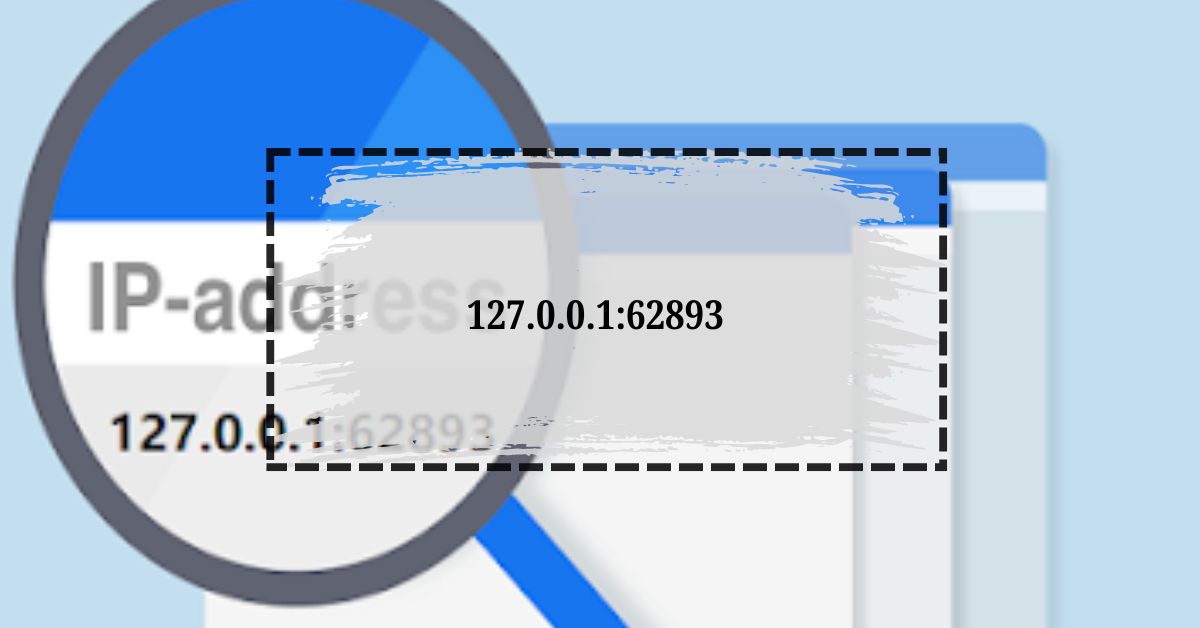127.0.0.1:62893 is a special IP address known as “localhost.” This address is like a loopback address that points back to your own computer. In simple terms, it allows your computer to communicate with itself. When you use 127.0.0.1:62893, you are essentially telling your computer to look at itself for any resources or services it needs.
What Is 127.0.0.1?
127.0.0.1 is part of the IPv4 address block reserved for loopback and local communications within a computer. It’s commonly used by developers and system administrators to test network applications. By using 127.0.0.1, they can ensure their applications work correctly without needing an external network.
The Significance of Port 62893
The number 62893 refers to a specific port on your computer. Ports are like channels that allow different types of data to flow in and out of your computer. Each port is identified by a unique number, and port 62893 is just one of many possible ports.
When you see 127.0.0.1:62893, it means that your computer is communicating with itself through port 62893. This combination is often used by software developers to test applications locally.
Why Use 127.0.0.1:62893?
Using 127.0.0.1:62893 offers several benefits:
- Testing and Development: Developers use this address and port to test their applications without exposing them to the internet. This ensures a safe and controlled environment.
- Security: Since 127.0.0.1 is a loopback address, any communication on this address stays within the computer. This reduces the risk of external attacks.
- Performance: Local testing using 127.0.0.1 is faster than testing over a network, as it eliminates latency and potential network issues.
How to Use 127.0.0.1:62893
Using 127.0.0.1:62893 is straightforward. Here’s a step-by-step guide:
- Install the Required Software: Ensure you have the necessary software installed on your computer. This could be a web server, database server, or any other application that you need to test.
- Configure the Application: Configure your application to use 127.0.0.1 and port 62893. This is typically done in the application’s settings or configuration files.
- Run the Application: Start your application. It will now use 127.0.0.1:62893 to communicate internally.
- Access the Application: Open your web browser or any other client software and enter 127.0.0.1:62893 in the address bar. This will allow you to interact with the application as if it were running on an external server.
Common Use Cases
Here are some common scenarios where 127.0.0.1:62893 is used:
- Web Development: Developers often run web servers locally using addresses like 127.0.0.1:62893 to build and test websites before deploying them online.
- Database Management: Database administrators use local addresses to manage and test databases securely.
- Software Testing: Quality assurance teams use 127.0.0.1:62893 to test software applications in a controlled environment.
Benefits of Local Testing
Local testing using 127.0.0.1:62893 offers several advantages:
- Isolation: Local testing isolates your application from the internet, reducing the risk of external interference.
- Speed: Testing locally is faster because it eliminates network-related delays.
- Security: Local testing keeps your data within your computer, enhancing security.
Potential Issues and Troubleshooting
While using 127.0.0.1:62893 is generally straightforward, you may encounter some issues. Here are common problems and their solutions:
- Port Conflicts: If port 62893 is already in use by another application, you may need to choose a different port.
- Firewall Settings: Ensure your firewall settings allow communication through port 62893.
- Application Configuration: Double-check your application’s configuration to ensure it’s set to use 127.0.0.1:62893.
Advanced Uses
For advanced users, 127.0.0.1:62893 can be used for more complex scenarios:
- Virtual Machines: You can use 127.0.0.1:62893 to set up communication between virtual machines on the same host.
- Docker Containers: Docker users can map local ports to containers using addresses like 127.0.0.1:62893.
- Custom Network Configurations: Network engineers can create custom network setups for testing and development purposes.
Security Considerations
While 127.0.0.1:62893 is generally secure, consider the following:
- Keep Software Updated: Ensure all software running on your computer is up-to-date to avoid security vulnerabilities.
- Use Strong Passwords: For applications requiring authentication, use strong and unique passwords.
- Monitor Network Traffic: Regularly monitor your network traffic to detect any unusual activity.
Conclusion
127.0.0.1:62893 is a powerful tool for developers, testers, and system administrators. It allows for safe, fast, and efficient local testing and development. By understanding and using this address and port combination, you can enhance your development workflow and improve the security of your applications.
FAQs
What is 127.0.0.1:62893?
It is a loopback address with a specific port used for local testing and development.
Why use 127.0.0.1?
To safely test applications on your computer without exposing them to external networks.
How do I access 127.0.0.1:62893?
Enter 127.0.0.1:62893 in your web browser or client software to access the application.
What if port 62893 is in use?
Choose a different port number and configure your application accordingly.
Is using 127.0.0.1:62893 secure?
Yes, it keeps communication within your computer, reducing the risk of external attacks.
Can I use 127.0.0.1:62893 with Docker?
Yes, you can map local ports to Docker containers using this address and port.
What are the benefits of local testing?
It offers isolation, speed, and enhanced security for your applications.
How do I troubleshoot issues with 127.0.0.1:62893?
Check for port conflicts, firewall settings, and application configuration.
Can I use 127.0.0.1:62893 for web development?
Yes, it is commonly used by web developers for local testing.
What security measures should I take?
Keep software updated, use strong passwords, and monitor network traffic.
By following these guidelines and best practices, you can effectively use 127.0.0.1:62893 for your development and testing needs.



